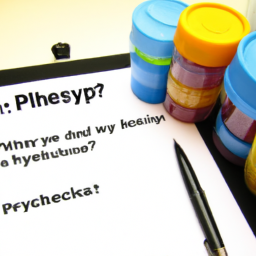is helicbacter pylori testing difficult to carry out? is it possibel to do it at home?

how many stages helicobacter pylori testing technology endured? what is current best technology?
2023-02-18
which method of helicobater pylori testing is more reliable?
2023-02-18is helicbacter pylori testing difficult to carry out? is it possibel to do it at home?

is helicbacter pylori testing difficult to carry out? is it possibel to do it at home?
-
Table of Contents
“Test for H. pylori Easily and Accurately – Now Possible at Home!”
Introduction
Helicobacter pylori (H. pylori) is a type of bacteria that can cause infection in the stomach and upper part of the small intestine. It is estimated that up to two-thirds of the world’s population is infected with H. pylori. Testing for H. pylori is important for diagnosing and treating the infection, but it can be difficult to carry out. There are several different tests available, and each has its own advantages and disadvantages. It is not possible to do H. pylori testing at home, as it requires specialized equipment and expertise. In this article, we will discuss the different types of H. pylori tests, their accuracy, and how they are performed.
What Are the Risks of Doing an H-Pylori Test at Home?
At-home H-pylori tests are becoming increasingly popular as a way to quickly and conveniently diagnose the presence of Helicobacter pylori, a type of bacteria that can cause stomach ulcers and other digestive issues. While these tests may be convenient, they come with certain risks that should be considered before taking one.
First, at-home H-pylori tests are not as accurate as tests conducted in a laboratory. The accuracy of the results can be affected by a variety of factors, including the quality of the test kit, the accuracy of the instructions, and the skill of the person administering the test. Additionally, the results of an at-home test may not be as reliable as those of a laboratory test, as the results may be affected by environmental factors such as temperature and humidity.
Second, at-home H-pylori tests may not detect all cases of infection. If the test is negative but the person is still experiencing symptoms, they should seek medical advice to determine if further testing is necessary.
Finally, at-home H-pylori tests may not provide the same level of detail as laboratory tests. For example, laboratory tests can provide information about the type and amount of bacteria present, which can help guide treatment decisions.
In conclusion, at-home H-pylori tests can be a convenient way to diagnose the presence of Helicobacter pylori, but they come with certain risks that should be considered before taking one. If the results of an at-home test are negative but the person is still experiencing symptoms, they should seek medical advice to determine if further testing is necessary.
How Accurate Is H-Pylori Testing?
H-pylori testing is a reliable and accurate method for detecting the presence of Helicobacter pylori, a type of bacteria that can cause stomach ulcers and other gastrointestinal issues. The test is typically performed using a blood sample, breath test, or stool sample.
Blood tests are the most accurate method for detecting H-pylori. These tests measure the presence of antibodies in the blood that are produced in response to the bacteria. The accuracy of the test is typically greater than 95%, meaning that it is very reliable for detecting the presence of H-pylori.
Breath tests are also accurate for detecting H-pylori, but they are not as reliable as blood tests. The accuracy of breath tests is typically around 80-90%. This means that there is a greater chance of false positives or false negatives with this type of test.
Stool tests are the least accurate method for detecting H-pylori. These tests measure the presence of the bacteria in the stool, but the accuracy is typically only around 70-80%. This means that there is a greater chance of false positives or false negatives with this type of test.
Overall, H-pylori testing is a reliable and accurate method for detecting the presence of Helicobacter pylori. Blood tests are the most accurate, followed by breath tests and then stool tests. It is important to note that false positives and false negatives can occur with any type of test, so it is important to discuss the results with a healthcare provider.
What Are the Benefits of H-Pylori Testing?
H-pylori testing is a medical procedure used to detect the presence of Helicobacter pylori, a type of bacteria that can cause a variety of gastrointestinal issues. This test is important for diagnosing and treating H-pylori infections, as well as for monitoring the effectiveness of treatment. Here are some of the benefits of H-pylori testing:
1. Accurate Diagnosis: H-pylori testing is a reliable way to diagnose an H-pylori infection. It can detect the presence of the bacteria in the stomach, which is important for determining the best course of treatment.
2. Early Detection: H-pylori testing can detect the presence of the bacteria before symptoms appear. This allows for early treatment, which can help prevent more serious complications.
3. Monitoring Treatment: H-pylori testing can be used to monitor the effectiveness of treatment. This helps ensure that the infection is being properly managed and that the patient is responding to treatment.
4. Prevention: H-pylori testing can help prevent the spread of the infection to others. By detecting the presence of the bacteria, it can help reduce the risk of transmission.
Overall, H-pylori testing is an important tool for diagnosing and treating H-pylori infections. It can also be used to monitor the effectiveness of treatment and to prevent the spread of the infection.
Conclusion
In conclusion, testing for Helicobacter pylori can be difficult to carry out, depending on the method used. It is not possible to do it at home, as it requires specialized equipment and trained personnel. However, there are a variety of tests available that can be done in a doctor’s office or laboratory.
If you’re wondering if it’s possible to test for Helicobacter Pylori at home, the answer is yes! eTestMedical offers a simple and easy-to-use home test kit that can help you determine if you have the infection. Click here to learn more and get started today!



